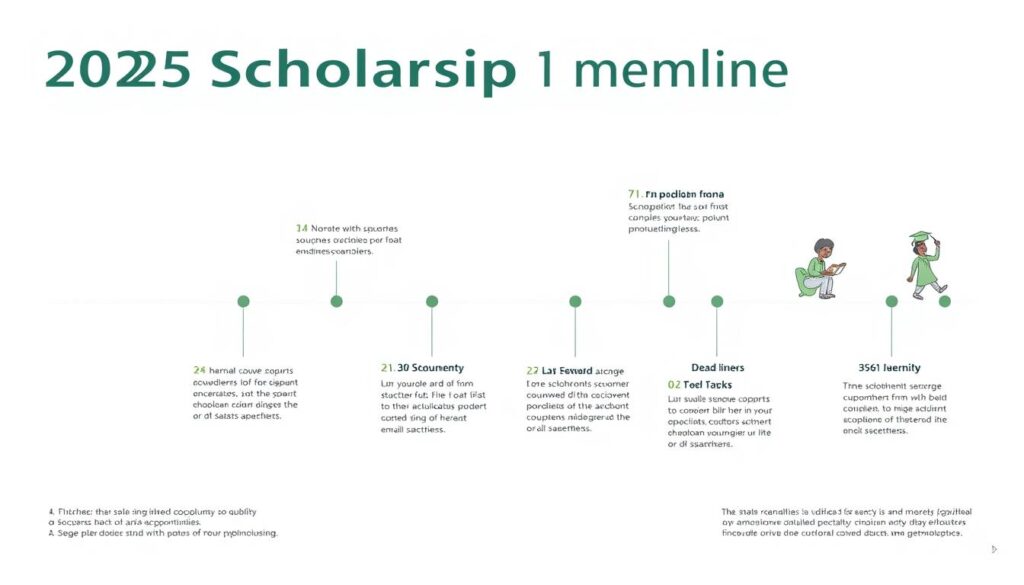2025 Scholarships for Nigerian Students: Find the Best Opportunities
Nigerian students seeking to further their education often face significant financial hurdles. Education funding is crucial for academic advancement, and scholarships can play a vital role in bridging the financial gap.
With numerous scholarships for Nigerian students available, it can be challenging to identify the best opportunities. This article aims to guide Nigerian students in finding and securing the most suitable scholarships to support their academic pursuits in 2025.
Key Takeaways
- Understanding the importance of education funding for Nigerian students.
- Identifying the best scholarship opportunities available in 2025.
- Learning how to navigate the application process effectively.
- Discovering tips to increase the chances of securing a scholarship.
- Exploring various sources of education funding beyond scholarships.
The Current State of Education Funding in Nigeria
The education system in Nigeria is facing significant challenges, primarily due to inadequate funding. This issue affects various aspects of the educational landscape, from infrastructure to the availability of resources for students.
The lack of sufficient funding has led to a myriad of problems for Nigerian students. It is essential to understand these challenges to appreciate the role of scholarships in supporting academic pursuits.
Challenges Facing Nigerian Students
Nigerian students encounter several obstacles, including inadequate educational infrastructure, limited access to resources, and financial constraints. Many educational institutions lack basic facilities, making it difficult for students to achieve their academic potential.
The financial burden on students and their families is significant, leading to a high dropout rate and limited access to higher education for many deserving students.
Why Scholarships Are Essential for Academic Advancement
Scholarships play a crucial role in supporting Nigerian students by providing them with the necessary financial assistance to pursue their academic goals. By alleviating some of the financial burdens, scholarships enable students to focus on their studies and achieve academic excellence.
Moreover, scholarships can open up opportunities for students to study abroad, exposing them to different cultures and educational systems, which can be invaluable for their personal and professional development.
By supporting students financially, scholarships contribute significantly to academic advancement and help in fostering a new generation of leaders and innovators.
Understanding the Scholarship Landscape for Nigerian Students
As the demand for higher education grows in Nigeria, understanding the available scholarship options becomes increasingly important.
The scholarship landscape is not one-dimensional; it encompasses various categories designed to support students from different backgrounds and with different academic achievements.
Types of Scholarships Available
Scholarships for Nigerian students can be broadly categorized into several types, each with its own eligibility criteria and benefits.
- Merit-Based Scholarships: Awarded to students who demonstrate exceptional academic performance.
- Need-Based Scholarships: Designed for students who require financial assistance to pursue their education.
- Field-Specific Scholarships: Target students pursuing specific fields of study, such as STEM or the arts.
- Location-Based Scholarships: Available to students from particular regions or states within Nigeria.
Key Scholarship Providers for Nigerian Students
Several organizations, both governmental and non-governmental, offer scholarships to Nigerian students.
These include international organizations, corporate bodies, and educational institutions themselves.
- Government agencies, such as the Nigerian Ministry of Education, offer scholarships to deserving students.
- International organizations like the World Bank and UNESCO provide funding for educational initiatives.
- Corporate bodies and foundations also contribute significantly to scholarship programs.
Understanding these providers and their offerings can significantly enhance a student’s chances of securing a scholarship.
Scholarships for Nigerian Students 2025: Complete Overview
The year 2025 presents numerous scholarship opportunities for Nigerian students to pursue their academic goals. With various sources offering financial aid, it’s crucial for students to understand the landscape of available scholarships.
Scholarships can be broadly categorized into several types, each with its unique eligibility criteria and benefits. Understanding these categories can help Nigerian students identify the most suitable opportunities.
Nigerian Government Scholarships
The Nigerian government offers various scholarships to its citizens, both within the country and abroad. These scholarships are often merit-based and cater to different fields of study. For instance, the Presidential Scholarship Programme is designed for high-achieving students to study at reputable international universities. Government scholarships are a significant source of funding, as they often cover tuition fees, living expenses, and other academic costs.
International Scholarships Open to Nigerians
International scholarships are another vital source of funding for Nigerian students. Organizations such as the Commonwealth Scholarship Commission and the African Leadership University offer scholarships to students from Nigeria. These scholarships can be country-specific, such as those offered by the UK, US, Canada, and Australia, or they can be open to students from various African countries.
“International scholarships not only provide financial support but also expose students to diverse cultures and academic environments, enhancing their global perspective.”
University-Specific Scholarships
Many universities, both within Nigeria and internationally, offer scholarships to attract top talent. For example, the University of Lagos provides scholarships to its students based on academic excellence. Similarly, international universities like Harvard and Stanford offer need-based and merit-based scholarships to students from around the world, including Nigeria.
Corporate and Foundation Scholarships
Corporate organizations and foundations also play a significant role in providing scholarships to Nigerian students. Companies like MTN Foundation and Golanite offer scholarships as part of their corporate social responsibility initiatives. These scholarships often target students in specific fields related to the company’s area of operation, such as STEM fields.
In conclusion, Nigerian students have a wide array of scholarship opportunities in 2025. By understanding the different types of scholarships available, students can better navigate the application process and increase their chances of securing financial aid.
How to Find the Best Scholarship Opportunities
With numerous scholarships available, Nigerian students can enhance their academic pursuits by identifying and applying for the most suitable opportunities. The key to securing a scholarship lies in a strategic and informed search process.
Online Scholarship Databases and Resources
The internet is a powerful tool for finding scholarships. Utilizing online databases and resources can streamline the search process. Websites such as Scholarships.com and Fastweb.com offer comprehensive lists of available scholarships, along with application guidelines and deadlines.
Additionally, official government websites, such as the Nigerian Ministry of Education and international organizations like the World Bank, provide information on scholarships for Nigerian students.
Networking and Mentorship Opportunities
Networking plays a crucial role in discovering scholarship opportunities. Connecting with academic advisors, professors, and professionals in your desired field can provide valuable insights and recommendations.
“Mentorship is key to unlocking opportunities. A good mentor can guide you through the process and open doors to new possibilities.” – Dr. Adebayo, Academic Advisor
Social Media and Scholarship Groups
Social media platforms and online groups dedicated to scholarships can be a rich source of information. Joining groups on platforms like Facebook and LinkedIn can connect you with others who are also searching for scholarships, allowing you to share tips and resources.
Working with Educational Consultants
For personalized guidance, consider working with educational consultants who specialize in scholarship placements. They can help tailor your applications to specific scholarships, improving your chances of success.
| Resource Type | Description | Benefits |
|---|---|---|
| Online Databases | Comprehensive lists of scholarships | Easy access to multiple opportunities |
| Networking | Connections with advisors and professionals | Personalized advice and recommendations |
| Educational Consultants | Personalized application guidance | Improved application quality |
By leveraging these resources and strategies, Nigerian students can significantly enhance their chances of finding and securing the best scholarship opportunities.
Field-Specific Scholarships for Nigerian Students
Field-specific scholarships present a valuable opportunity for Nigerian students to achieve their academic goals without financial constraints. These scholarships are designed to support students in various fields of study, enabling them to pursue their passions and contribute to their respective fields.
STEM Scholarships
STEM fields (Science, Technology, Engineering, and Mathematics) are crucial for innovation and development. Several organizations offer scholarships to Nigerian students pursuing STEM disciplines. For instance, the Mastercard Foundation Scholars Program provides full scholarships to students from low-income backgrounds to study at partner universities.
Business and Economics Scholarships
For Nigerian students interested in Business and Economics, various scholarships are available. The Mandel Scholarships, for example, support students with leadership potential in these fields. These scholarships not only cover tuition but also provide mentorship and networking opportunities.
Arts and Humanities Scholarships
Arts and Humanities are vital components of a well-rounded education. Scholarships in these fields, such as the Rhodes Scholarships, offer Nigerian students the chance to study at prestigious institutions like the University of Oxford. These scholarships recognize academic excellence and potential for leadership.
Medical and Health Sciences Scholarships
Nigerian students pursuing Medical and Health Sciences can benefit from scholarships like the Wellcome Trust Scholarships. These awards support research and study in health-related fields, contributing to the development of medical science and healthcare in Nigeria.
| Field of Study | Scholarship Example | Benefits |
|---|---|---|
| STEM | Mastercard Foundation Scholars Program | Full tuition, accommodation, and mentorship |
| Business and Economics | Mandel Scholarships | Tuition, mentorship, and networking opportunities |
| Arts and Humanities | Rhodes Scholarships | Full tuition, fees, and living expenses |
| Medical and Health Sciences | Wellcome Trust Scholarships | Research funding and study support |
Understanding Eligibility Requirements
Understanding the eligibility requirements is key to a successful scholarship application. Nigerian students seeking scholarships in 2025 must navigate through various criteria that determine their eligibility. These requirements can vary significantly from one scholarship to another, making it crucial for applicants to be well-informed.
Academic Requirements
Academic performance is a significant factor in determining eligibility for most scholarships. Typically, scholars expect applicants to have a strong academic record, often quantified through GPA scores or equivalent academic achievements. For instance, some scholarships may require a minimum GPA of 3.0 or higher on a 4.0 scale. Additionally, certain scholarships may demand specific academic achievements, such as being in the top percentile of their class or having relevant academic awards.
To increase their chances, students should focus on maintaining an excellent academic record. This includes performing well in core subjects related to their field of study and demonstrating a consistent upward trend in their academic performance.
Financial Need Criteria
Many scholarships, especially those aimed at supporting students from disadvantaged backgrounds, consider financial need as a critical eligibility criterion. Applicants may be required to provide detailed financial information, including family income, to demonstrate their need for financial assistance. Some scholarships are specifically designed for students who cannot afford tuition fees without financial aid.
- Documentation of family income
- Proof of financial status
- Explanation of financial challenges
To fulfill these requirements, students should be prepared to provide comprehensive financial documentation and, in some cases, write a compelling statement outlining their financial situation.
Field of Study Restrictions
Some scholarships are restricted to students pursuing specific fields of study, such as STEM disciplines (Science, Technology, Engineering, and Mathematics), arts, or humanities. Applicants must ensure their course of study aligns with the scholarship’s focus areas. For example, a scholarship aimed at promoting innovation in technology will likely require applicants to be enrolled in a relevant technology or engineering program.
- Identify scholarships that match your field of study
- Review the specific requirements for each scholarship
- Tailor your application to highlight your relevance to the field
By understanding and meeting these eligibility requirements, Nigerian students can significantly enhance their chances of securing scholarships in 2025.
Step-by-Step Application Process for Scholarships
Applying for scholarships can be a complex process, but breaking it down into manageable steps can make it more achievable for Nigerian students. The key to a successful application lies in understanding and executing each step with precision.
Creating a Scholarship Calendar
The first step in the scholarship application process is to create a calendar that outlines all the critical deadlines. This includes application submission dates, document verification deadlines, and interview schedules. By having a clear timeline, Nigerian students can plan ahead and avoid last-minute rushes.
To create an effective scholarship calendar, students should research various scholarship providers and note down their respective deadlines. It’s also beneficial to set reminders a week or two before each deadline to ensure timely completion and submission of applications.
Gathering Required Documents
Gathering the necessary documents is a crucial part of the application process. Commonly required documents include academic transcripts, letters of recommendation, and personal statements. Nigerian students should start collecting these documents early to avoid any delays.
It’s essential to ensure that all documents are up-to-date and meet the specific requirements of each scholarship. For instance, some scholarships may require certified copies of transcripts, while others may need original documents.
Writing Compelling Personal Statements
A personal statement is often a critical component of a scholarship application. It provides students with the opportunity to showcase their achievements, goals, and motivations. To write a compelling personal statement, Nigerian students should highlight their unique strengths and experiences.
The statement should be well-structured, concise, and free of grammatical errors. It’s advisable for students to have their statements reviewed by mentors or educational consultants to get feedback and improve the overall quality.
Securing Strong Recommendation Letters
Recommendation letters play a significant role in scholarship applications as they provide insight into a student’s capabilities and character from an external perspective. Nigerian students should identify potential recommenders early, such as teachers or mentors, and provide them with sufficient information about the scholarship and their achievements.
It’s crucial for recommenders to highlight specific qualities and accomplishments that align with the scholarship’s criteria. Students should also ensure that their recommenders have enough time to write and submit the letters before the deadline.
Tips for Writing Winning Scholarship Essays
Crafting a compelling scholarship essay is crucial for standing out among numerous applicants. A well-written essay not only showcases an applicant’s academic achievements but also their personal qualities and aspirations.
Understanding the Prompt
The first step in writing a winning scholarship essay is to thoroughly understand the prompt. Applicants should carefully read and analyze the question or statement provided, identifying key themes and requirements. It’s essential to address all parts of the prompt to demonstrate a clear understanding of what is being asked. Misinterpreting the prompt can lead to an off-topic essay, significantly reducing the applicant’s chances.
Structuring Your Essay Effectively
A well-structured essay is vital for conveying the applicant’s message clearly and persuasively. The essay should have a logical flow, starting with an engaging introduction, followed by the body, and concluding with a strong summary. Using transitional phrases can help connect ideas between paragraphs, enhancing the overall coherence of the essay. The structure should be coherent, making it easy for the reader to follow the applicant’s narrative.
| Essay Section | Purpose | Key Elements |
|---|---|---|
| Introduction | Engage the reader and introduce the topic | Hook, background information, thesis statement |
| Body | Provide detailed information and examples | Main points, supporting evidence, analysis |
| Conclusion | Summarize the main points and reiterate the thesis | Summary, restated thesis, final thought |
Showcasing Your Unique Story
Scholarship committees are looking for applicants who can tell a unique and compelling story. Applicants should highlight their achievements, challenges, and goals, demonstrating how the scholarship will help them achieve their aspirations. Using specific examples and anecdotes can make the essay more engaging and memorable. It’s also important to show, not tell, allowing the reader to infer qualities and characteristics from the narrative.
By understanding the prompt, structuring the essay effectively, and showcasing a unique story, applicants can significantly improve their chances of writing a winning scholarship essay.
Preparing for Scholarship Interviews
Scholarship interviews can be daunting, but with thorough preparation, Nigerian students can excel and secure funding for their education. The interview is a critical stage in the scholarship application process, allowing the selection committee to assess the candidate’s personality, motivation, and suitability for the award.
Common Interview Questions
Understanding common interview questions is vital for effective preparation. Some frequently asked questions include:
- What motivated you to apply for this scholarship?
- Can you discuss your academic achievements and goals?
- How do you plan to contribute to your field of study or community?
| Common Questions | Tips for Answering |
|---|---|
| Why do you deserve this scholarship? | Highlight your achievements, financial need, and career goals. |
| What are your strengths and weaknesses? | Be honest about your weaknesses and discuss how you’re working to improve them. |
| How will this scholarship impact your future? | Discuss how the scholarship will enable you to achieve your academic and career objectives. |
Presentation and Communication Tips
Effective communication is crucial during scholarship interviews. Confidence and clarity are key. Nigerian students should practice articulating their thoughts clearly and concisely, avoiding filler words and maintaining eye contact.
Additionally, dressing appropriately and being punctual can make a positive first impression. It’s also beneficial to research the scholarship provider and be ready to discuss how your goals align with their mission.
Following Up After Interviews
After the interview, a thank-you note or email can leave a positive impression. It should be sent within 24 hours, expressing gratitude for the opportunity and reiterating interest in the scholarship.
Common Mistakes to Avoid in Scholarship Applications
When applying for scholarships, Nigerian students often make critical errors that can jeopardize their chances of securing funding. Scholarship applications are competitive, and a single mistake can be the difference between receiving an award and being rejected.
To increase their chances, students must be aware of the common mistakes that can undermine their applications. By understanding these pitfalls, Nigerian students can better prepare and submit successful scholarship applications.
Missing Deadlines
One of the most critical errors is missing application deadlines. Scholarship providers often have strict timelines, and late submissions are typically not considered.
To avoid this, students should create a scholarship application calendar, tracking deadlines and ensuring that all materials are submitted on time.
Incomplete Applications
Submitting an incomplete application is another common mistake. This can include failing to provide required documents, not filling out all sections of the application form, or omitting necessary details.
Students should double-check their applications before submission to ensure that everything is complete and accurate.
Ignoring Instructions
Ignoring the instructions provided by the scholarship provider is a significant application error. This can include failing to follow specific formatting guidelines, not adhering to word limits, or not providing the required information.
Students must carefully read and follow the instructions to avoid being disqualified.
Applying for Unsuitable Scholarships
Applying for scholarships that are not a good fit is a waste of time and effort. Students should research scholarship opportunities thoroughly to ensure they are eligible and that the scholarship aligns with their academic and career goals.
- Research the scholarship provider and their criteria.
- Ensure you meet the eligibility requirements.
- Tailor your application to the specific scholarship.
By avoiding these common mistakes and being diligent in their application process, Nigerian students can improve their chances of securing scholarships and achieving their academic aspirations.
Country-Specific Scholarships for Nigerian Students
Nigerian students can benefit from a range of country-specific scholarships designed to support their educational pursuits abroad. These scholarships are offered by various countries to attract international students and promote cultural exchange.
UK Scholarships for Nigerian Students
UK Scholarships for Nigerian Students
The UK is a popular destination for Nigerian students, with several scholarships available to support their studies. Some notable scholarships include:
- The Commonwealth Scholarship Commission offers scholarships to students from Commonwealth countries, including Nigeria.
- The Chevening Scholarship is a prestigious award that enables Nigerian students to pursue postgraduate studies in the UK.
These scholarships cover tuition fees, living expenses, and other costs, making it easier for Nigerian students to study in the UK.
US Scholarships for Nigerian Students
US Scholarships for Nigerian Students
The US is home to many world-renowned institutions, and several scholarships are available to Nigerian students. Some key opportunities include:
- The Fulbright Scholarship Program, which offers grants for Nigerian students to pursue graduate studies in the US.
- The African Leadership University (ALU) Scholarship, which provides financial support to students from Africa, including Nigeria.
These scholarships can significantly reduce the financial burden of studying in the US.
Canadian Scholarships for Nigerian Students
Canadian Scholarships for Nigerian Students
Canada is becoming an increasingly popular destination for international students, with various scholarships available to Nigerians. Notable scholarships include:
- The Vanier Canada Graduate Scholarship, which supports highly qualified doctoral students, including those from Nigeria.
- The Canadian Commonwealth Scholarship Program, which offers awards to students from Commonwealth countries.
These scholarships help Nigerian students achieve their academic goals in Canada.
Australian and Other Countries’ Scholarships
Australian and Other Countries’ Scholarships
Australia and other countries also offer scholarships to Nigerian students. Some examples include:
- The Australia Awards Scholarships, which provide opportunities for undergraduate and postgraduate study in Australia.
- Scholarships offered by other countries, such as France, Germany, and Japan, which are available to Nigerian students through various government and institutional programs.
These country-specific scholarships provide Nigerian students with a wide range of opportunities to pursue higher education abroad.
Timeline for 2025 Scholarships for Nigerian Students
The journey to securing a 2025 scholarship for Nigerian students begins with a clear understanding of the application timeline. A well-planned approach is essential to navigate the complex process of applying for scholarships.
Early Preparation (6-12 Months Before)
Early preparation is crucial for Nigerian students applying for 2025 scholarships. This involves researching potential scholarships, understanding the eligibility criteria, and gathering necessary documents. Students should also start working on their personal statements and securing recommendation letters. Effective early preparation can significantly enhance a student’s chances of securing a scholarship.
Application Season (3-6 Months Before)
During the application season, Nigerian students should focus on submitting their applications well before the deadlines. This period is critical for ensuring that all required documents are submitted and that applications are thoroughly reviewed for errors. Students should also be prepared to follow up on their applications.
Post-Application Period
After submitting their applications, students should monitor their email and application portals for updates. It’s also essential to be prepared for potential interviews and to have a plan in place for responding to scholarship offers. The post-application period is a time for continued vigilance and preparation for the next steps.
| Period | Key Activities |
|---|---|
| 6-12 Months Before | Research scholarships, gather documents, work on personal statements |
| 3-6 Months Before | Submit applications, follow up on submissions |
| Post-Application | Monitor application status, prepare for interviews |
Managing Finances While Waiting for Scholarship Results
Financial management becomes crucial for Nigerian students as they wait for scholarship results. The uncertainty of the outcome can significantly impact their financial planning and stability.
To mitigate potential financial strain, students can explore alternative funding options. These may include educational loans, grants, or part-time jobs that can help cover living expenses and tuition fees.
Alternative Funding Options
Nigerian students can consider various alternative funding sources. For instance, banks offer educational loans with flexible repayment plans. Additionally, crowdfunding and scholarships from private organizations can provide necessary financial support.
| Funding Source | Description | Benefits |
|---|---|---|
| Educational Loans | Loans provided by banks and financial institutions for educational purposes. | Flexible repayment plans, covers tuition and living expenses. |
| Crowdfunding | Raising funds from a large number of people, typically via online platforms. | Can cover significant expenses, community support. |
| Private Scholarships | Scholarships offered by private organizations and companies. | Targeted support, sometimes with additional mentorship. |
Budgeting and Financial Planning
Effective budgeting is critical during this period. Students should prioritize essential expenses, such as tuition and accommodation, over discretionary spending. Creating a detailed budget plan can help manage available funds efficiently.
By adopting prudent financial management strategies, Nigerian students can minimize financial stress while awaiting scholarship results.
Success Stories: Nigerian Students Who Won Major Scholarships
The success stories of Nigerian students who have won major scholarships serve as a beacon of hope and motivation for aspiring scholars. These individuals have not only achieved academic excellence but have also overcome numerous challenges to secure prestigious scholarships.
One such inspiring story is that of a student who won a fully-funded scholarship to study at a top-tier university abroad. Despite facing financial constraints and limited resources, this individual persevered and secured the scholarship through determination and hard work.
Lessons from Scholarship Winners
Scholarship winners often share common traits that contribute to their success. These include:
- Diligence: A strong work ethic and commitment to academic excellence.
- Resilience: The ability to overcome obstacles and stay focused on their goals.
- Strategic Planning: Careful planning and execution of their scholarship applications.
By emulating these traits, aspiring scholars can enhance their chances of securing scholarships.
How They Overcame Challenges
Many Nigerian students face significant challenges in their pursuit of scholarships, including limited access to resources and intense competition. However, by adopting effective strategies and staying committed to their goals, they can overcome these hurdles.
| Challenge | Strategy to Overcome |
|---|---|
| Limited Resources | Seek online resources and guidance from educational consultants. |
| Intense Competition | Focus on developing a unique value proposition and showcasing personal strengths. |
As highlighted by a renowned educational expert,
“The key to winning a scholarship lies not just in academic achievement, but in demonstrating a clear vision, resilience, and a willingness to learn and grow.”
By learning from the success stories of Nigerian students who have won major scholarships, aspiring scholars can gain valuable insights and inspiration to pursue their own academic dreams.
Conclusion
Securing scholarships is a crucial step for Nigerian students to achieve their academic goals. The various scholarship opportunities available, ranging from government-funded to international and corporate scholarships, can significantly ease the financial burden of higher education.
By understanding the different types of scholarships, eligibility criteria, and application processes, Nigerian students can increase their chances of securing financial aid. Effective planning, timely application submissions, and well-crafted personal statements are essential components of a successful scholarship application.
As highlighted in the success stories of Nigerian students who have won major scholarships, perseverance and dedication are key to overcoming challenges. By leveraging the resources and tips provided, students can navigate the scholarship landscape and unlock their full potential.
Ultimately, scholarships for Nigerian students play a vital role in fostering academic excellence and promoting future leaders. By exploring and applying for these opportunities, students can take a significant step towards achieving their educational aspirations.
















Post Comment